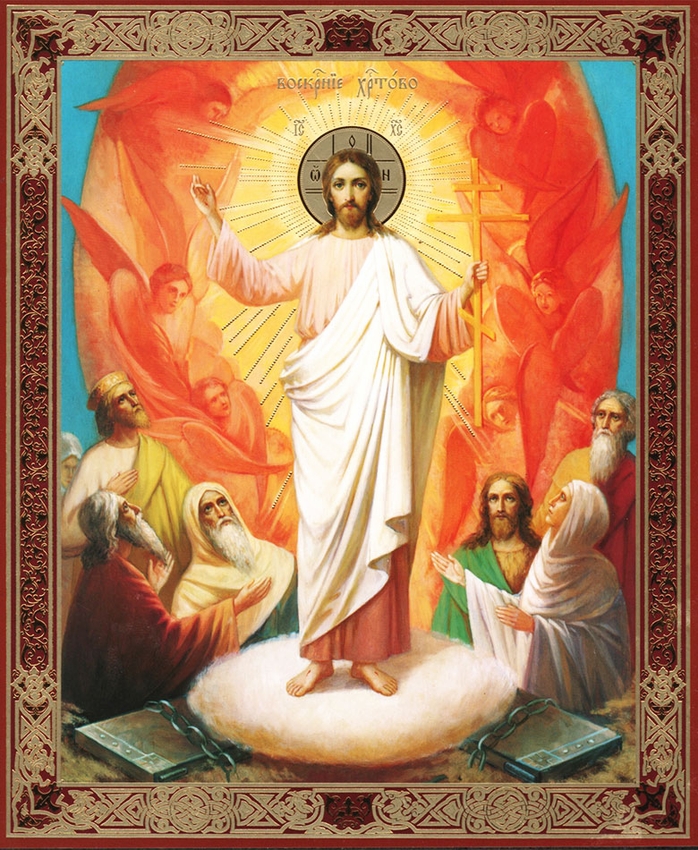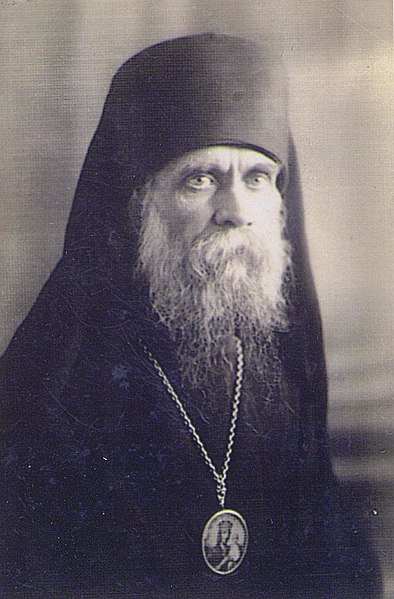On the Apodosis (Leavetaking) of Pascha

Sermon given on the leavetaking of Pascha (May 10/23 1928) by Archbishop Simon (Vinogradov, +1933)
of Peking and China
Today is the Apodosis of Pascha, that is, the last day of this holiday. According to Divine establishment of Old Testament holidays, all of our great holidays have an after-feast, that is, the singing of the holiday’s prayers are not only sung on the feast day itself, but over the next several days, and on the final day the apodosis the services of the holiday are repeated almost in their entirety.
The Paschal songs are sung until the fortieth day, that is, until the Ascension of the Lord. The continuation of the celebration of Pascha until Ascension signifies that the Lord Jesus Christ, over the course of forty days of his Resurrection, appeared to His disciples.
And so today the Paschal Feast comes to an end. In daily life, the end of this holiday brings a degree of sorrow: the rejoicing ends, the abundance of food is replaced by a regular diet, in other words, weekday life begins and those who love Pascha are saddened. But our feast days are not like that: they bring us from one glory to another the holiday is glorious, but even more glorious is the spiritual fruit that the holiday creates in the souls of believers.
Here is how the Church expresses the glory of the fruit of Pascha: Taught by Christ the new and pure way of life, let us all strive to preserve this well to the end, that we may receive the coming of the Holy Spirit (First troparion, 9th song on the 4th Sunday of Pascha.)
Holy Scripture says: When a man has finished, he is just beginning (Wisdom of Jesus Son of Sirach, 18:6). The purpose of a Church holiday is not within the feast day itself, not in the description of the event being celebrated, but in demonstration of the Spirit and of power (1 Corinthians 2:4).
The Son of God appeared in the flesh, not in order to live on earth and organize daily life (Luke 12), but as we hear in the Creed, for us men, and for our salvation. His appearance in the world, His sufferings, death, and resurrection brought new life to mankind, opening for us a path to eternal life. And so it is with Pascha. We say that Pascha is the mysterious appearance to us of the resurrected Christ: not only the appearance in the form of an image, not only to remind us about what had once happened but to set us upon the path of eternal salvation.
The Lord told the Apostles during his farewell: Nevertheless I tell you the truth; It is expedient for you that I go away: for if I go not away, the Comforter will not come unto you; but if I depart, I will send him unto you (John 16:7). And so for us, too, the eternal bliss with Christ in His Kingdom has not yet commenced this is merely our hope but not because the Kingdom of Heaven is not yet ready, but because we are incapable of eternal bliss: we need another podvig under the guidance of the Holy Spirit.
For this reason it is impossible for us to turn our entire life on earth into the celebration of Pascha: on earth, Pascha only occurs during a specific time. But when the unfading (eternal) day of the Kingdom of Heaven arrives, then our Pascha (that is, beholding the Face of the Lord Jesus Christ) will be never-ending, and we will no longer celebrate its apodosis.
Metropolitan Anthony (Khrapovitsky) wrote this about Archbishop Simon:

“His Eminence Archbishop Simon was known to me as a student in Kazan Academy, where he studied from 1898 to 1902. His friends all loved him for his humility and meekness, a character he preserved until his death. He was reared from childhood in the pious family of his father, the senior priest of the cathedral in Vladimir, Protopriest Vinogradov. Vladyka Simon, with his soft manner, served in the harsh foreign circumstances, and died at 58, his life cut short through hard labors in studying the Chinese language and in preaching the faith in Christ; he learned the tongue fairly quickly, but quicker to come were the respect and love he garnered from both Russians and local Chinese population. I feel it my duty to declare that I could never get used to the thought of His Grace Simon as an older man, for thanks to his crystal-pure soul I saw him until the very end as a young monk and student. When he was a hierodeacon, his Academy friends called him “mama”, to emphasize his caring, kind attitude towards them all” (from Polnoje sobranije sochinenii Blazhennejshego mitropolita Kievskogo I Galitskogo Antonija [The Complete Works of His Beatitude Metropolitan Anthony of Kiev and Galicia]).





